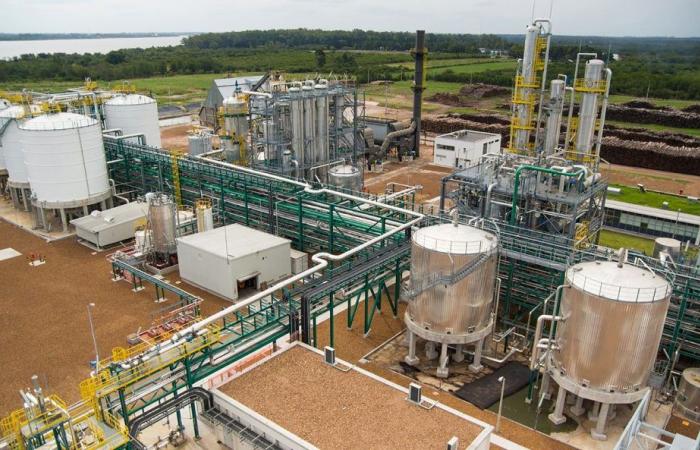The Bioenergy League of the Provinces held a meeting yesterday to work on a new wording for the regulations that govern biofuels.
The meeting took place yesterday at the Casa de Salta, chaired by the minister Martin de los Rios. The meeting was attended by peers from the provinces of Santa Fe, Cordoba, Entre Rios, Tucuman and Jujuy.
After that, a meeting took place with the Secretary of Bioeconomy of the Nation, Fernando Vilellaand the Undersecretary of Liquid Fuels of the Ministry of Energy, Louis de Ridder.
In this area, the draft Biofuels Law promoted by the Bioenergetics League was analyzed, and which was prepared in coordination with the private sector and the productive chambers.
As reported by Minister De Los Ríos in the program Hour of Voices (FM Ya)the initiative already has agreement from the national government, so the official presentation of the project is expected to take place in the coming days.
The new norm
The driving provinces are those that produce bioethanol (made from cane and corn) and biodiesel (soybean oil)which are mixed by law with the gasoline and diesel before sale.
In the first known text of the Bases Law, the national government included a series of changes that were later withdrawn during the debate. However, the regulations promoted by the 6 provinces of the League maintain a series of similarities with the proposal of Freedom Advances.
The provinces propose private tenders the best price for local supply, a mechanism that today is set with quotas and prices.
That is, they want to go to periodic competitions where the buyers (refiners) and sellers (producers of sugarcane and corn ethanol and soybean oil biodiesel).
In this scheme, the SMEs (not integrated) and the cereals (integrated) would compete in Two distinct segments to meet local market demand.
De Los Ríos indicated to this medium that the project maintains the parity of half bioethanol produced from cane and the other half of the cut for bioethanol produced from corn. With this agreement, the source of work and the value chain in Salta are guaranteed.
“The main economic spirit is to substitute imports. Today we have to put an end to the slogan that biofuels are going to take away a business alternative from the hydrocarbon provinces and that is not true. There is a market that allows coexistence.”
Martin de los Rios
The minister maintains that this bidding scheme guarantees that the installed capacity of the Argentine biofuels industry can be better sold.
The project raises the postponement to produce bios for refiners of hydrocarbons as YPF, Raízen, Axion Energy, Puma and crude oil producers evaluating entering the business.
Oil company claim
I would just enable them when the percentage of mixture with gasoline (today at 12%) is higher than 18% in the case of bioethanol and 15% in biodiesel with diesel (today 7.5%), something that in several refineries they see very far awaysince in the Omnibus Law it was foreseen that these percentages would only be reached after 2028.
This point is questioned the refiners, who maintain that it goes against the international trend which reflects that oil companies are increasingly entering the oil business. plant-based fuels.
“We work to guarantee the employment that already exists and that it is enhanced. Today in Salta we have a lot of job creation in the north from the production of sugarcane bioethanol and clearly we have to take care of this value“said the minister in defense of the cut-off limitations for refineries.






